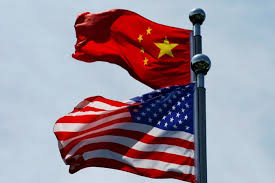Tensions run high in the Middle East as a host of conflicts continue without end. Many Arab states are under the impression that the United States is making a strategic pivot in its foreign policy away from the Middle East and its partnerships with Arab and North African states. In the wake of a U.S. less committed to its partners and allies in the region, the Chinese government has taken up an interest in filling that void. According to the Arab Youth Survey in 2022, which surveys thousands of young people across North Africa, the Levant, and The Arabian Peninsula, 78% of respondents stated that they view China as a close ally, compared to only 63% stating that they view the United States as a close ally. This rise in popularity of the Chinese has emerged for a few key reasons.
Young Arabs remain skeptical of the United States’ dedication and support for Israel, which many Arab nations see as both an existential threat to peace in the region and many labeling the Israeli state their number one enemy. Where U.S. relationships between Arab states are dwindling, Israel remains one of the United States’ closest allies. Chinese recent accomplishments look promising and young Arabs are more open to working with the Chinese especially after the Chinese government brokered an end to hostilities between two major regional powers: Saudi Arabia and Iran, in 2023. The Chinese entrance into diplomatic affairs in the Middle East stood in contrast to the previous economic involvement that China had in the region and looks promising. The Chinese are also not stepping down their efforts, attempting to reach another agreement between long standing rivals Israel and Palestine. Economically, the previous Chinese economic assistance has been helpful in the past for Arab states creating a strong working relationship between Beijing and Riyadh that has fostered trust and respect. Finally, another reason for the rise in popularity of Beijing is the declining acceptance of Russia as an ally. The survey showed that Russia has fallen significantly among Arab countries when asked to list allied nations most likely due to the war in Ukraine and it will likely be a while before states feel comfortable listing Moscow as a friend again.
The Middle East has just opened into an even greater arena between the United States and China. Can the U.S. regain its support among Arab states as the great negotiator or will the peace between Tehran and Riyadh allow for greater Chinese involvement into the Middle East? Either way, the hegemony of the United States is being threatened as states are beginning to look for other leaders among the international community.
Written by Administrative Intern, Charles Larkin


